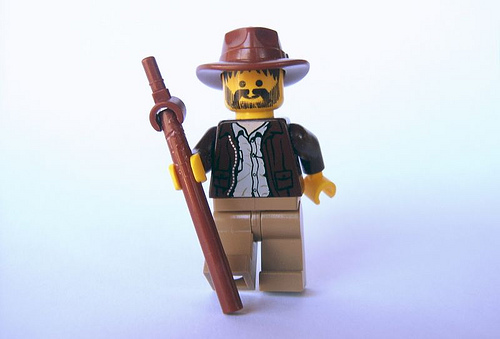Ok. This looks bad. Even if you don't know what it is, it looks bad. Or maybe really good. But it's not good. It's bad. Really, really bad. So what is it?
This is a graphical representation (from the website of the St. Louis Fed) of the excess reserves at the Fed.
FRACTIONAL RESERVE BANKING
We, like most of the world, have a fractional reserve banking system. This means that banks (with a 10% reserve requirement as example) can loan out $90 of every $100 in deposits. The rest ($10) they keep at the branch, or "on reserve" with the FED.
So, the chart above that indicates ~$1 trillion in excess reserves could conceivably translate into $10 trillion dollars or more when released into the market through bank loans.
As maligned as Wikipedia is, they do have a decent entry on the topic of fractional reserve banking.
A DEFINITION OF INFLATION
As hard as it may be to believe, people argue over the definition of inflation. But most people agree that a general rise in prices would qualify as inflation.
But what causes the general rise in prices? I agree with the school of thought that says that an increase in the supply of money (and people argue about the definition of that as well) will result in an increase in prices. Or it can conversely be stated that an increase in the money supply results in the loss of value of each individual unit of money.
That's a clumsy way of saying it. But it'd be like if you had a really valuable baseball card. It gets some of its value from the scarcity of cards just like it. But what would happen to its value if someone found a whole bunch of that same baseball card that had been stored somewhere? Or maybe a better example would be the price of oranges. If there is a bumper crop of oranges, the price of each individual orange would decrease when the supply increased.
Here is a discussion on the definition of inflation at the Mises Institute's site.
Well, you've heard of the FED and their program(s) of quantitative easing. The FED has been buying "troubled" assets from banks. And they've been buying treasury debt.
They've been making deals with the banks, trading those smelly MBSs and CDOs for reserves at the FED.
A serious explanation of Quantitative Easing can be found here.
BUT THE FED HAS THINGS UNDER CONTROL. BEN BERNANKE SAID SO ON 60 MINUTES.
Yeah, I don't know if you watched that 60 minutes
But seriously, how is the FED going to keep those reserves out of the market and increasing prices? They have some options, but I just don't see how they're going to work. For a lecture on that, check out Robert P Murphy's appearance.
Right now the FED is paying the banks interest on their reserves. But according to Dr. Murphy, this is unsustainable. So that money will, sooner or later, hit the market.
WHAT DOES THIS MEAN FOR YOU?
It means that inflation is coming. I didn't say hyper-inflation, though that is possible. Jorg Guido Hülsmann talks to Lew Rockwell on the subject here.
Some people buy gold and silver as a hedge against inflation. Others try to guess where the inflation is going to hit first - and invest there. Some recommend commodities.
I personally think that health care is going to inflate next, as if it hadn't inflated enough already. I probably read this somewhere, so can't take credit for it nor link to the proper source, but it seems to me correct to see a relationship between the recently passed health care bill and banking. Maybe some kind of health care credit card or something. I haven't figured out how this would affect the health insurance industry yet, and we know that they are powerful as well (as evidenced by the passage of said health care bill).
CONCLUSION
There's no reason to freak out about this. It's like a hurricane coming. Maybe I'm wrong (but I'm not). Maybe the hurricane won't hit your house. You can't leave, 'cause it's a big hurricane and there's nowhere safe, that I know of, for you to go. So maybe just cover your financial doors and windows, fill the figurative bath tub with water, and - if it comes - hide in the basement until it's over.
Peace.
PD

